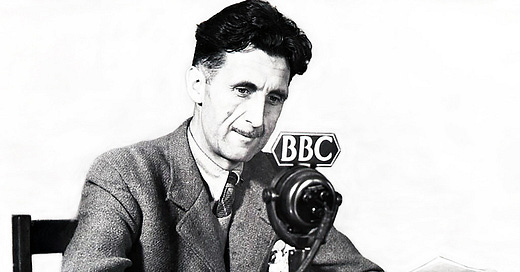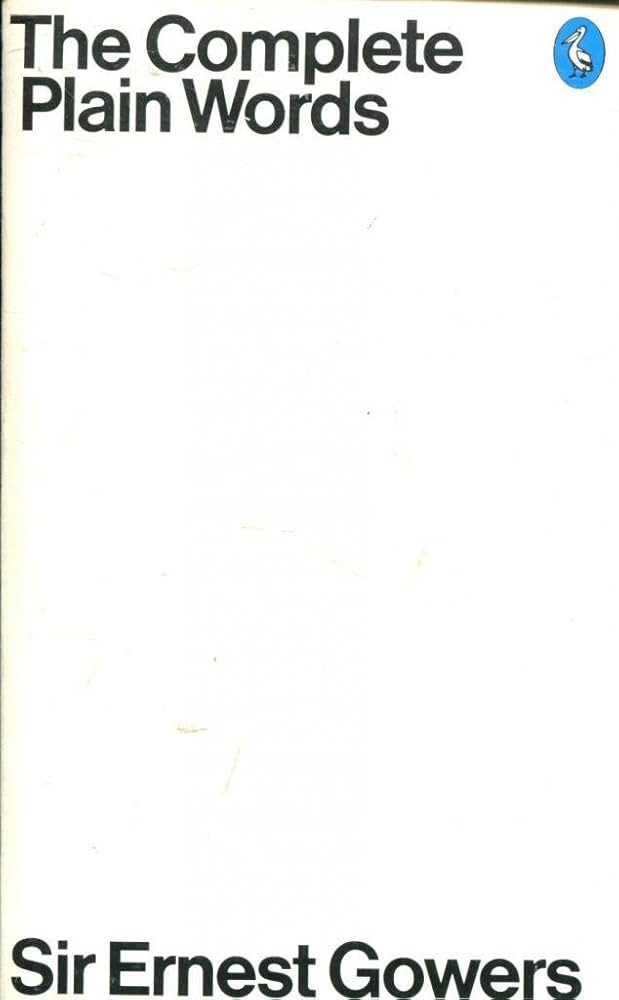I recently came across George Orwell's well-known advice for writers, from his 1946 essay Politics and the English Language. You're probably well aware of it already, but just in case, here it is again.
Never use a metaphor, simile, or other figure of speech which you are used to seeing in print.
Never use a long word where a short one will do.
If it is possible to cut a word out, always cut it out.
Never use the passive where you can use the active.
Never use a foreign phrase, a scientific word, or a jargon word if you can think of an everyday English equivalent.
Break any of these rules sooner than say anything outright barbarous.
This put me in mind of a book that I was forced to read in school when I was about 14 or 15, The Complete Plain Words, by Sir Ernest Gowers. I had no idea at the time how much impact that book was going to have on my life.
It was originally written in 1954 to teach civil servants how to communicate clearly and efficiently. In particular, it explained why florid, complex sentences, as taught in English writing classes in schools, were a huge barrier to communication. Simplicity, according to Gowers, was far more important than clever writing.
Back then, my writing was appallingly pretentious. I would pride myself on the number of subordinate clauses I could put into a sentence. My vocabulary, well, it was like I was regurgitating Roget's Thesaurus. I would never use a short word if a long word - or several long words, preferably with Latin or Greek roots - would do. Orwell would have despised the way I wrote, but the mid-Victorian writers would have been impressed. My teachers complimented me frequently on my command of the English language.1 I was damn proud of myself.
“The single biggest problem in communication is the illusion that it has taken place.”
- George Bernard Shaw
But when I began to write professionally, first as a journalist, and then as a technical writer, I realized that nobody could understand what I was saying. Everything was grammatically and syntactically correct, and it was all perfectly precise and accurate, but it was like I was speaking a completely different language to the rest of the world. I had to learn to write in a completely different way, focusing on clarity and ease of understanding.
At first, it felt like I was dumbing down my writing, and I hated it. But gradually, reluctantly, I came to understand that what I was doing was focusing on the needs of my audience, not my own ego. I also realized that I was developing a very important skill: many of my clients and students have said that what they really value about me is my ability to explain complex ideas in a way that's easy to understand.
When I came back to writing fiction after a long hiatus, I found myself writing in a totally new style. Compared to the extravagances of my juvenile writing, I've ended up with a voice that's much simpler and more direct, and, I think, more impactful as a result. I don’t need long sentences or obscure words. I’m not trying to dazzle anyone with my literary brilliance. I’m just trying to tell a damn story in a way that my readers will understand and enjoy.
Strangely, even though they made us read Complete Plain Words, they never made us follow its principles. That’s English private schools for you.





